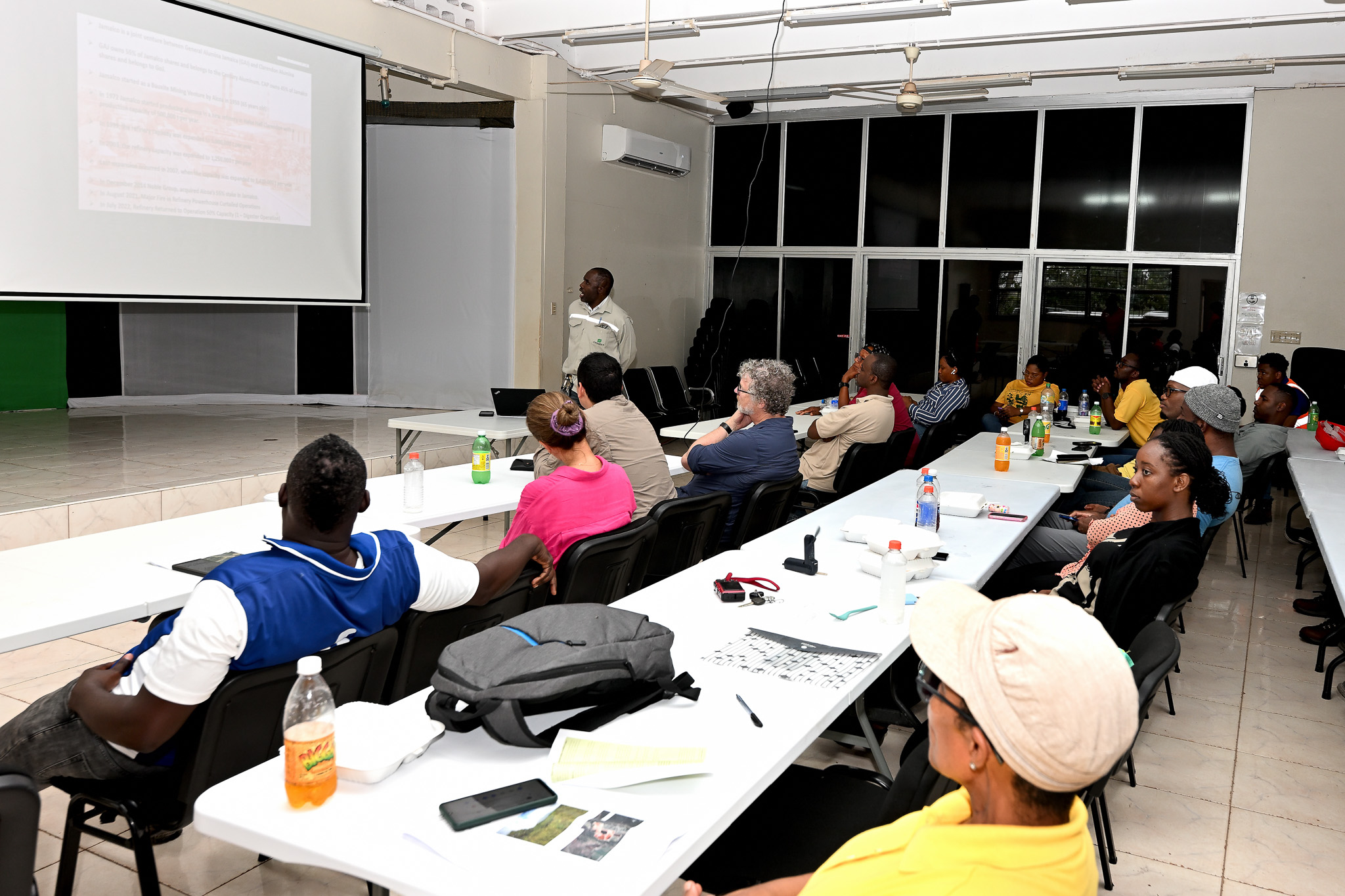The IGF recently facilitated a training workshop on environmental management and mine closure in Jamaica’s mining sector. About 34 government officials attended the workshop in Kingston, the capital of Jamaica.
The first day of the training began with registration, a welcome from the Mines and Geology division of the Ministry of Agriculture, Fisheries and Mining, and an introduction to the IGF and its Mining Policy Framework (MPF). Participants learned about the Environmental Management Progress Assessment Tool (EMPro) and began diagnosing air and noise management issues in the country’s mining sector. Discussions covered Jamaica’s legal framework, climate commitments, and the impact on local communities, focusing on climate risk, dust control, and noise management. There was also a review of international standards, especially the IFC’s air and noise management guidelines, and government roles in policy enforcement.
The second day focused on water and waste management. It started with water management, legal frameworks, community considerations, and international standards, including case studies from Mongolia and Chile. Participants also worked on diagnosing waste management issues. Afterward, they explored the legal framework for waste management, international standards, and government roles, with case studies from Ghana and Canada.
Day three featured visits to bauxite mines, limestone quarries, and other mining operations.
Day four covered mine closure and post-mining transition, with presentations on mine closure principles, the importance of closure plans, and Jamaica’s specific challenges. The afternoon focused on post-mining land uses, risk analysis, and practical exercises.
On the final day, participants learned about closure cost estimating and financial assurance, with a case study on the El Sauzal Mine in Mexico. Social aspects of mine closure were also discussed, and the workshop concluded with a review of closure priorities, a closing ceremony, and certificate distribution.

